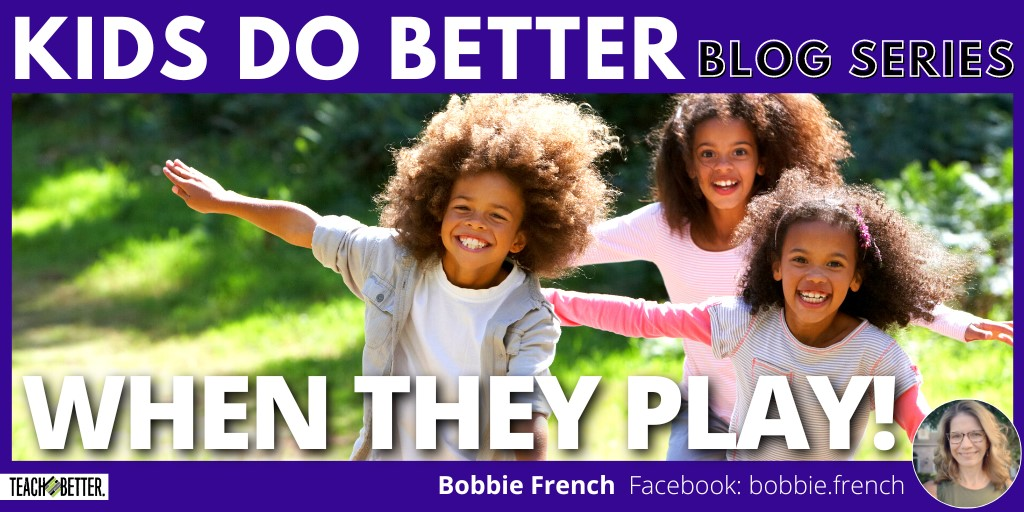TL;DR:
- Play fosters creativity, social development, physical growth, language skills, and independent thinking, crucial in early education.
- Play supports creative thinking, social interaction, and decision-making, offering opportunities to enhance skills that aid in academic and personal life.
- Educators play a vital role in promoting play-based learning, focusing on creativity, problem-solving, physical development, language skills, and independence in young children.
Play is an essential part of a child’s development, especially in the early years. It is during this time that children learn most of their fundamental skills and abilities, including social, emotional, and cognitive skills. Play is an integral part of this process, and children must have ample opportunities to engage in play from preschool to grade 3.
I’m thankful that Massachusetts is rolling out Approaches to Play and Learning Standards. I currently have several teachers piloting these resources. I’m excited about the opportunity for us to bring more playful approaches to the learning and teaching already happening in our classrooms.
As early childhood educators, we can all agree that PLAY is INTEGRAL to learning, but I still want to share 5 reasons why play is essential for learning during these early years.
Image by rawpixel.com. Original public domain image from Flickr.
Play Enhances Creativity and Imagination
During play, children have the opportunity to explore and experiment with new ideas, materials, and concepts. This freedom allows them to be creative and imaginative, which helps to develop their problem-solving and critical-thinking skills. Children need times during their day that they can practice using their imagination. We structure so many parts of their day that we need to provide times they can imagine and use their creativity. Children love to be creative and draw, color, build, paint, and act out scenes using their imagination and bringing in their background knowledge.
Play Promotes Social and Emotional Development
Playing with others helps children to develop social skills such as sharing, turn-taking, and communication. They also learn how to regulate their emotions and positively interact with others. These skills are important for building healthy relationships, self-esteem, and resilience.
We want children to have shared decision-making within the classroom. They need to practice making decisions so that they can become confident decision-makers later in life. Click To TweetThese are often the skills our students are lacking the most. Our students need to learn self-regulation skills. They often do this through play and learning to stop when they are asked to or if their turn is over. We also see students learning vital skills while in the building center and one student builds a tall tower and another student crashes into it with a car. This is the time for adults to observe the interactions and watch students figure out how to solve this problem themselves. Sometimes it’s not even a problem and the two students decide this is a fun game and do it together all over again!
Play Supports Physical Development
Physical play such as running, jumping, and climbing helps children develop gross motor skills, strength, and coordination. Fine motor skills are also developed through activities such as drawing, cutting, and building with blocks. These skills are essential for academic success, as they support tasks such as writing, drawing, and using tools.
Teachers are noticing children are lacking fine motor skills each year. With all of the technology our children are exposed to, they are not always using their fine motor skills to cut, color, or build. We need to provide opportunities for them to practice these skills and strengthen their muscles and stamina with these tasks.
Play Enhances Language and Communication Skills
Image by rawpixel.com
Play provides opportunities for children to engage in conversations, ask questions, and learn new vocabulary. Through play, children develop their language and communication skills, which are crucial for academic success and social interactions.
Language skills are vital to academic success and a prerequisite for many literacy skills. We need to provide lots of opportunities for our students to use oral language throughout their day in less structured ways. The implementation of turn and talks is one way we structure these opportunities.
Play Promotes Independent Thinking and Decision-Making Skills
When children engage in free play, they can make their own decisions and solve problems independently. This helps to develop their decision-making skills, which are important for success in academic and personal life.
Think about how you are providing independent thinking and decision-making in your classroom. We want children to have shared decision-making within the classroom. They need to practice making decisions so that they can become confident decision-makers later in life. Sometimes just having students choose what they want to eat for lunch, what center they want to play in, or how they want to show their knowledge on a topic can provide the practice opportunities they need. We should provide intentional practice opportunities like this for students daily.
[scroll down to keep reading]Based on the American Journal of Play, here are 10 reasons we should all keep playing. Play…
- Strengthens You
- Makes You Smarter
- Helps You Solve Problems
- Boosts Creativity
- Reduces Stress
- Helps You Make Friends
- Enhances Attractiveness
- Builds Resilience
- Promotes Discovery
- Is Fun

Play is essential for learning especially from preschool to grade 3. It enhances creativity and imagination, promotes social and emotional development, supports physical development, enhances language and communication skills, and promotes independent thinking and decision-making skills. As educators and parents, we should provide ample opportunities for children to engage in play and recognize its importance in their overall development.
For more blog posts and resources on play Check out the The Strong National Museum of Play
About Bobbie French
Bobbie French is an educational leader, presenter and writer from Massachusetts.
Bobbie has been an educator for over 24 years. She has been an elementary guidance counselor, classroom teacher, special education coordinator, Title I Director, Preschool Director and Administrator.
Bobbie is passionate about focusing on the whole child and creating an environment where all students have a sense of belonging. She appreciates and recognizes the hard work of teachers, and is committed to supporting others to be their best for kids every day. Her passion and enthusiasm for creating a positive and engaging school culture is contagious.
Bobbie is also an avid photographer and loves to tell her school’s story.





